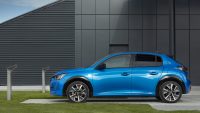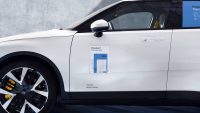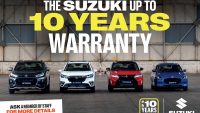MPs have warned that the government isn’t doing enough about the ‘huge challenge’ concerning the ban on selling new petrol and diesel cars.
They also say the UK ‘has a mountain to climb’ to meet its emissions targets.
The sale of new petrol and diesel cars is to be outlawed by 2030, but the influential parliamentary public accounts committee says in a report that it isn’t convinced the government has a proper plan to smooth the way and meet targets.
That includes providing the necessary charging infrastructure, such as for drivers in rural areas or without off-road parking.
It also says the cost of buying a zero-emission car is ‘still too high’ for many.
The Department for Transport and Department for Business, Energy and Industrial Strategy must do more to consider the consequences of prohibiting the sale of traditionally fuelled cars, according to the inquiry.
Among them are the skills and capabilities to support such a major change in the UK’s vehicle fleet, future power needs and loss of fuel duty.
The committee accused both departments of lacking ‘a clear published plan setting out how they propose to manage these consequential impacts’.
Following the 2030 ban, hybrids are to be prohibited from 2035.
Just 11 per cent of last year’s new car registrations were for ultra-low emission cars, and the report warned: ‘Getting from this level to 100 per cent as new petrol and diesel cars are phased out is a huge challenge.’
Committee chairwoman Meg Hillier said the UK ‘has a mountain to climb’ to meet its targets.
Challenges include making the car industry ‘environmentally and socially compliant’ and building the necessary infrastructure, but the government having to ‘wean itself off carbon revenues’ could be the toughest, she said.
‘What we’ve got is a government throwing up a few signs around base camp and no let-up in demand for oversized, petrol-guzzling vehicles.
‘This isn’t about more targets with no plan behind them inevitably getting missed. It’s about averting the real-world challenges that are bearing down on all of us.
‘The government needs to get the country behind it and lead the way in the global race against climate change.’
Mike Hawes, chief executive of the SMMT, said manufacturers shared the government’s ambition for an ‘electric revolution’ but there had to be a ‘comprehensive and holistic plan to get us there in time’.
He added: ‘That plan must convince consumers to make the switch. It must provide the incentives that make electric cars affordable for all, and it must ensure recharging is as easy as refuelling.’
A government spokeswoman said: ‘We’ve got a highly ambitious and world-leading approach to increasing the uptake of zero-emission cars, and the progress we’re making in this area will help us to meet our targets.
‘Already, we’re investing £2.8bn in helping industry and drivers make the switch, and will continue our work to install thousands of chargepoints and boost the development of new technologies to meet our goals’
RAC head of policy Nicholas Lyes said: ‘While the 2030 deadline is a huge challenge, the number of drivers choosing electric vehicles is higher than ever, and with more new models coming on to the market, the proportion will only grow further.
‘The government’s plug-in car grant provides some incentive to purchase an electric car but there is no commitment to retain this beyond 2023 at present.
‘We would encourage the government to continue looking at ways to incentivise take-up.
‘A strong network of fast, reliable and easy-to-use public chargepoints which allow for contactless payment, alongside measures to help those without off-street parking, are undoubtedly vital pieces in the jigsaw of making an electric vehicle become the default choice in the next few years.’



































